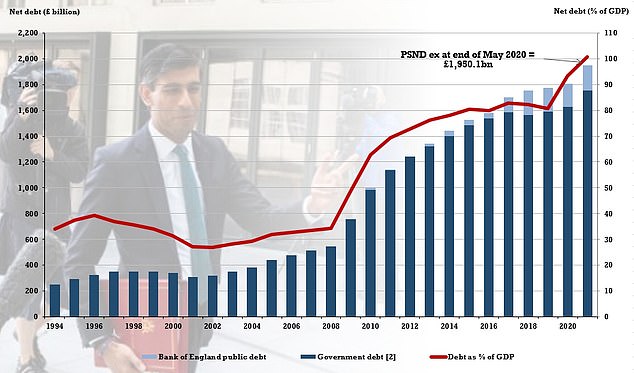Britain’s budget deficit swelled further in May, taking debt as a percentage of GDP above 100% for the first time since the financial year ending 1963.
Borrowing stood at 55.2 billion pounds ($69 billion) last month, the Office for National Statistics said Friday. It brings the total since the start of the fiscal year in April to 103.7 billion pounds, the biggest two-month total on record.
The increase reflect the cost of Chancellor Rishi Sunak’s unprecedented interventions to help prop up the economy, and the deficit is likely to swell further this year. The government is currently paying the wages for almost 12 million jobs and more stimulus including tax breaks and infrastructure projects potentially in the pipeline.
May’s number was the highest single month for borrowing on record, after April’s record figures was revised down to 48.5 billion.
Both numbers are still well above any figure before the virus hit, with monthly borrowing never exceeding 22 billion pounds even in the depths of the financial crisis.
Net debt including Bank of England programs jumped to 100.9% of GDP.




























 WhatsApp us
WhatsApp us